Be the Master of Your Technology Dungeon: Leveraging Technology Effectively to Make Library Instruction More Inclusive
1- Short Description:
Incorporating Universal Design for Learning (UDL) can help instruction librarians take the initiative to make their classroom more inclusive to all students, regardless of learning style and/or disability. Technology can be a powerful tool for UDL, but it can also seem overwhelming. Which should you choose? Should you use more than one? Should you even use technology at all? There are many technologies that can make the incorporation of UDL easier and overall make the sessions more accessible to all students.
In this session, we propose a sort of “Technology Speed Dating” to allow participants to sample several technologies and learn about the ways to leverage what we might already know to make our instruction more inclusive to all. Technologies may include standard favorites, such as Google products (Google Slides, Google Docs, Google Drive, etc.), and other technologies that participants may be aware of but less familiar with, such as Canva, Mentimeter, Poll Everywhere, Padlet, Piktochart, YouTube, etc. Participants will get to test out technologies by rotating from station to station at set intervals. Each station will feature one technology and have one facilitator to guide participants through the features and ways to use the technology to incorporate techniques of UDL.
2- Session Format: Hands-on Workshop / Skill-building Workshop
3- Takeaways: Participants will learn about a variety of technologies in small groups. The small group setting will allow them to explore features that will help implement UDL in the library instruction. Participants will be given the option of creating accounts for the free versions of all technologies taught in this session.
4- Organization: We will post a call for participation for facilitators who have skills in the technologies that we will be featuring in this session. We anticipate having between 3-5 different stations with some technologies grouped together.
5- Contact Information: Kristina Clement, kclemen8@uwyo.edu or Samantha Cook, scook@uwyo.edu
Customer support service by UserEcho


Slight correction - Contact info for Samantha Cook should be scook13@uwyo.edu